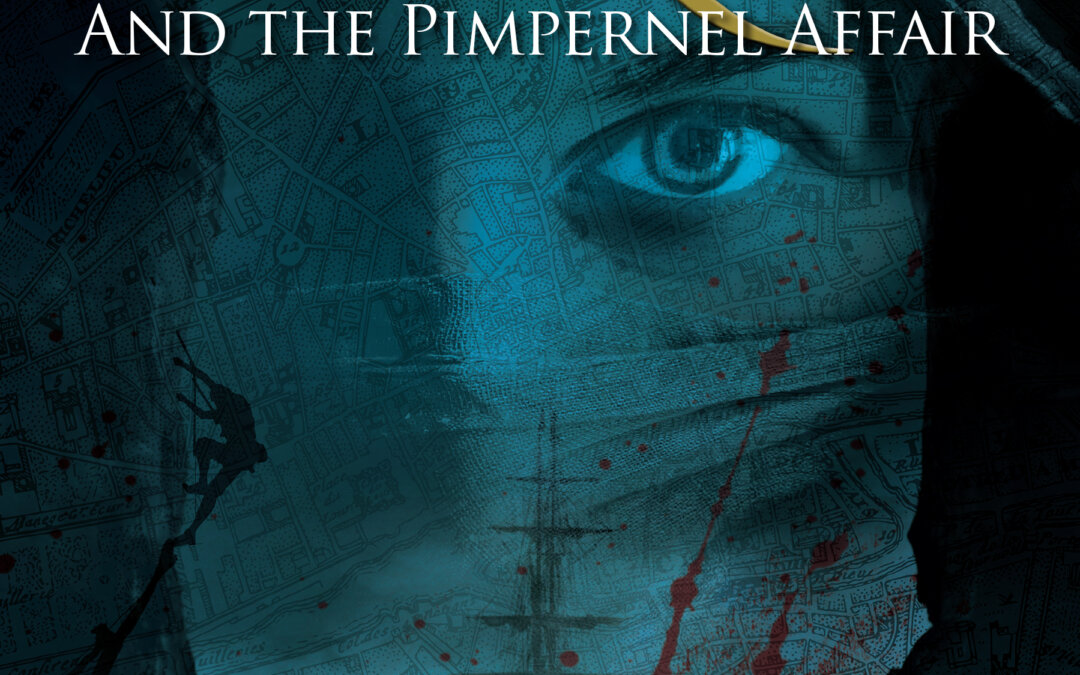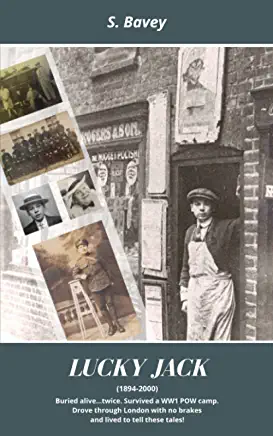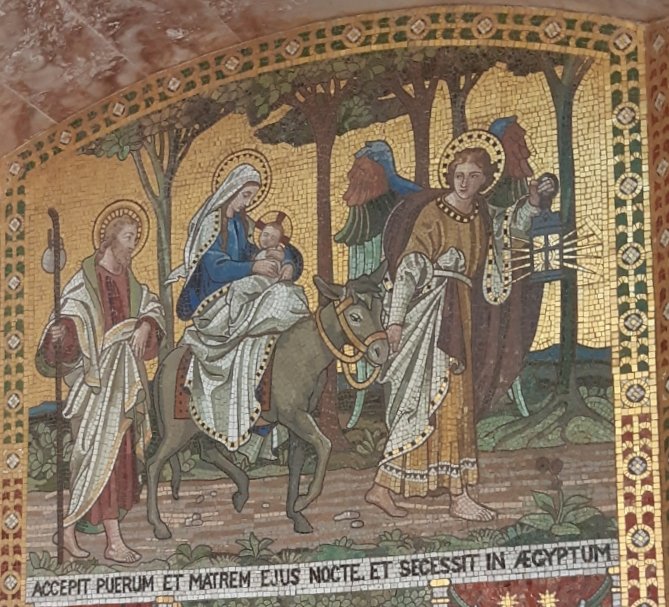
by TCW | Jan 14, 2022 | Uncategorized
Burke and the Pimpernel Affair is officially published today. It’s only on Kindle at the moment – the paperback edition has been delayed by (yes, you guessed it) covid. It should be along very soon though. Anyway, nice as it is to see people reading physical copies of the books, most of my sales are on Kindle which costs just £3.99. You can always buy it now and get it again once it’s in paperback!
But what do you get for your money? Well, after the very dark story of Burke in Ireland, I thought it was time to have something that was more frothy and fun. As a child I had enjoyed Baroness Orczy’s Scarlet Pimpernel stories and the idea of a story of a daring British agent freeing French prisoners from Paris gaols appealed.
All the Burke stories have a solid historical background, so my first question was: could this have happened? And the answer is that not only could it have happened but Paris in the early 19th century was apparently full of agents springing people from French prisons with embarrassing ease. Burke’s loyal henchman, William Brown, has his own view on why this comes about:
He put it down to the revolutionary temperament: after all, if you spent your whole time talking about Liberté it stood to reason, he thought, that you weren’t going to put your heart into building prisons.
The French and the British were constantly sending spies into each other’s countries, either to gather information or to subvert the enemy with propaganda. (We’ve seen some of this in Burke in Ireland.) The British even had a chain of safe houses for smuggling agents to and from Paris – a chain that came to feature prominently in Burke and the Pimpernel Affair.
So my idea turned out to be not only just about possible but quite plausible. And the more I looked into it, the more real history kept intruding into the plot. So my homage to Orczy turned out to have a lot more historical accuracy than I’d ever expected. (Actually, the most improbable bit of Orczy’s tales – Robespierre’s destruction, indirectly caused by the Pimpernel’s plots – is surprisingly accurate.)
I did wonder if I was pushing my luck in having Burke infiltrate Napoleon’s court and introducing him to the Empress Josephine, but, after I’d written it, I discovered that the real James Burke did indeed spend time at the French court. I’m glad I didn’t know this when I started because it was before 1809, when this story is set, and I might well have ended up changing much of the plot. It’s an interesting example, though, of how once you get into the skin of your characters you can end up inventing things that really happened.
So there you are: a spy romp that turns out not to be the souffle of nonsense that I’d been secretly hoping for. It does remain relatively light-hearted, though. The body count is in low single figures – practically bloodless by Burke standards – and there are the usual comic asides. It introduces quite a few real people who are fascinating characters in their own right: the odious Fouché as chief villain; Morel de Vindé, an aristocratic survivor of the revolution who could pretty well justify his own book; and, of course, the Empress Josephine, who was, in reality, much more than a silly woman who got lucky with Napoleon.
It’s a blast! Buy it (or read it free on Kindle Unlimited).
Buy link: https://mybook.to/Pimpernel.
by TCW | Jan 11, 2022 | Book review
With Burke and the Pimpernel Affair coming out on Friday, my blog is a bit occupied with the adventures of my Napoleonic spy at the moment. That should mean waiting a few weeks for my review of Lucky Jack. I don’t want to hang about, though, as Lucky Jack is a wonderful book and deserves all the support it can get. So I am yet again reviving my Tuesday book review slot so as to get the word out. I hope you enjoy it and that it encourages you to give the book a go.
Lucky Jack
This is a “sort of a memoir”. It sits between memoir (all in the first person, much in Jack’s own words) and a biography (put together by Jack’s granddaughter, Sue Bavey).
Jack was born in 1894 and died in 2000 age 106.
Jack was, in many ways, an ordinary man, so his experiences give a fascinating picture of the changes in life between the end of the 19th century and the very beginning of the 21st.
He describes incidents throughout his life in the same way, whether it was skating on the frozen Thames as a child or living the horror of the World War I trenches.
Jack was born the year before my father (yes, my father was very old and I am no longer young) and he was brought up not that far from where I live now, so I’m constantly catching glimpses of a world I heard described by my own dad or places that I know. Reading about the early 20th century like this is a strange experience. The familiarity of much of it suggests that life has not changed that much and then you come to a detail like his baby sister being buried in the same grave as a stranger “for a small cost” and you are reminded how much was different.
The 100th anniversary of the end of World War I three years back means that we know much more about the horrors of the trenches now than we did until recently but, even so, Jack’s account brought me closer to many of the realities of life in the trenches than anything else I’ve read.
Jack’s military service was not just in France. He also served in Dublin during the Easter Rising. He does not write much about this, but it is telling that he considered his posting back to Ypres was “a relief”. Our history books are too quiet on our relations with Ireland and this tantalisingly brief glimpse of the reality of British military occupation there is revealing.
Jack was captured by the Germans in March 1918 and gives a harrowing account of his life as a prisoner of war. For some reason (perhaps because we think that the old nationalist divisions should be left to heal) we hear little about the way in which the Germans treated their prisoners. I was quite shocked.
After the war, Jack returned to England and married. There are lots of glimpses of life with his new wife. These do not contribute much to our understanding of the period, but it is these vignettes of domestic life that make Jack a three dimensional human being. He takes on the role of Everyman, guiding us through the Depression and World War II.
The years after the Second World War are not covered in so much detail. He leaves London and, soon after, his wife dies. The rest of his life recounts the move from living with his son and daughter-in-law to lodging with an elderly friend, moving into sheltered accommodation and then counting down to death with a series of grand birthday parties: his hundredth, his 104th, his 105th, and finally one quieter party to mark his 106th birthday. He died three weeks later.
I read this because Sue Bavey asked me to and I was quite nervous of taking it on. Memoirs have become quite popular lately, but I wasn’t sure I wanted to read the life story of a West London cobbler. In fact, it was fascinating. Nowadays we say that children should learn about history from the experience of ordinary people, but what is usually presented as “ordinary people” is an anodyne composite of the man or woman in the street. These sanitised figures give no real understanding of the lives of “ordinary people” while Jack’s life, I felt, gave genuine insights into what the world was like throughout the 20th century: a period of astonishing change. As my father used to point out, he had grown up over a stables, when horses were the main form of transportation but he lived to fly abroad for his holidays and eventually to watch men travel to the moon. Jack shared these experiences. Like all children, I never paid proper attention to my father’s accounts of his life. Jack has given me another chance to understand it and I am grateful.
This is a wonderful book, which I recommend wholeheartedly. It is available on Amazon: https://www.amazon.co.uk/Lucky-Jack-1894-2000-Memoirs-World/dp/B09M544DST
by TCW | Jan 7, 2022 | Uncategorized
Burke and the Pimpernel Affair was finished at the end of last summer, but I was re-publishing the John Williamson Papers and I wanted these to have a clear run without trying to promote a new Burke book at the same time. After that we were coming into the pre-Christmas rush with hundreds of books being promoted and it seemed a silly time to be launching a new title. So here we are in January and it’s been 10 months since the last Burke book (Burke in Ireland) and I can’t wait any longer. Burke and the Pimpernel Affair is being published next Friday (14th). And here’s the cover:
We’ve tried to keep the theme of the other Burke covers, but this one is particularly striking. It reflects the thrills and spills of Burke’s most outrageous adventure to date as he infiltrates the French capital in a spy story that shows that he really is a Napoleonic-era James Bond.
More details next week, but it’s already available to pre-order at mybook.to/Pimpernel.
by TCW | Dec 17, 2021 | Uncategorized
Next Friday (when my blog post would usually come out) will be Christmas Eve. What do you mean, you knew that already? It snuck up on me so fast I can hardly believe it. That’s the trouble with retailers starting the run-up to Christmas in October – I just blank it because It’s obviously not going to happen for ages and then I suddenly realise that it’s here.
Anyway, I think you will have better things to do next week than read my blog – at least I hope so (unless Boris Johnson has another cruel trick up his sleeve and we’re all stuck at home desperately looking something to occupy ourselves). So today’s blog is just to wish you all the very best of Christmases. I think we all deserve that after last year.
My Christmas picture is from the Astors’ private chapel at Cliveden, one of the places we were able to go to as the country finally started to open up again. We’d never been there before but the grounds are amazing and I do recommend a visit.
Anyway, that’s it from my blog for 2021. I’ve published something every week (sometimes twice a week) right through the year and now I’m taking my annual break. Stay safe, stay well, and I’ll see you next year (when there will be another James Burke book to entertain you).
Have a wonderful Christmas (or midwinter Festival of your choice).
by TCW | Dec 10, 2021 | Book review
Last week I posted here to say that books make excellent Christmas presents. I’m not about to start recommending a list of books for Christmas, but by pure coincidence I have a couple of reviews that I need to post, so I’m going to put these up here and if the books appeal, I suggest you buy them.
The Poison Keeper: Deborah Swift
It’s difficult to write a review of a book that you feel is simply practically perfect in every way, especially when the plot contains so many twists, turns and surprises that there is hardly anything you can say that won’t include a spoiler. So here is a very short review of Deborah Swift’s The Poison Keeper. It’s set in 17th century Italy – mostly in Naples – and it follows the adventures of a young woman who is forced by circumstances to take up her mother’s trade as an apothecary. She starts reasonably enough providing remedies for minor ailments, moves on to abortifacients and, almost before she knows it, she’s providing poison for murder on a scale that makes the authorities wonder why it is that so many rich men are suddenly dying and leaving their wealth to their wives.
As I said, it’s difficult to explain why a book like this is so extraordinarily good. Perhaps it’s the convincing period detail, perhaps it’s the wonderful characterisation, perhaps it’s the moral quandaries that the characters face. Is the poisoner, in the end, any worse than a mercenary soldier? If men can use their strength and power to humiliate and subjugate women, is it legitimate for women to use a bit of pharmacology to even things up?
The story is told with Swift’s usual verve and skill and is one of those books that had me putting off things that really ought to have been done just so that I could get on to the end of the story.
We’re coming to that season when everybody has to choose their books of the year. The Poison Keeper has definitely made my shortlist.
The Paris Apartment: Lucy Foley
The Paris Apartment is being compared to books by Agatha Christie, but this is grossly misleading. Agatha Christie wrote carefully constructed detective mysteries in which the clues were made available to the reader and much of the satisfaction the books gave came from working out whodunnit. The Paris Apartment is more of a thriller. Four people share a luxurious apartment building with a conciergerie who lives in a little shed in the courtyard. Ben has been invited by an old friend to take the only empty apartment for a peppercorn rent. (We never discover why the apartment is empty, which is a minor, but real, irritation for any Agatha Christie style detective fans who want all the loose ends neatly tied off.)
Ben’s sister has invited herself to come and stay with him, but when she arrives he is missing. She sets out to solve the mystery of his having vanished.
The story is told in the first person by each of the people living in the flat (including, for a while, the apparently deceased Ben). The place obviously harbours an evil secret. We are even told that the basement used to be used by the Gestapo for torturing prisoners, which adds an appropriately macabre undertone to the story. As the story goes on, layer after layer of mystery is revealed. I’m not going to say anything else about the plot as there are many twists and turns before the denouement. I didn’t see most of them coming, but somehow they did not seem that surprising after they had happened. Possibly it’s because the whole thing is written like a jigsaw puzzle and the pieces do definitely fit neatly together, but credibility and characterisation are sacrificed to making the mechanics of the plot work.
Did I care about the people or their ultimate fate? Absolutely not. But was I curious enough keep reading? Yes. So this is a book which will pass away a wintry afternoon over the Christmas holidays and I’m sure it will make a more than acceptable gift for mystery thriller fans. Just don’t give it to anybody who really likes Agatha Christie.
Please note that I got a pre-publication copy. If you do want to give it as a Christmas present, it will have to be Christmas 2022, as it isn’t being published until March.
And don’t forget my books
Some people seem to lose count. (I do myself.) There are five books about my Napoleonic-era spy, James Burke. A sixth, Burke and the Pimpernel Affair will be published early in 2022. If you want to read more about the series, click on this link: https://tomwilliamsauthor.co.uk/james-burke-his-majestys-confidential-agent/
There are three books in the John Williamson Papers, which tackle issues of power and colonialism in the mid-19th century: https://tomwilliamsauthor.co.uk/the-john-williamson-papers-completing-the-trilogy/
I’ve also written two contemporary urban fantasies (Dark Magic and Something Wicked), which are a complete change from historical fiction. They are fun to write and fun to read. If you want to enter a world of Black Magic and vampires and (with the publication of the next one in early 2022) werewolves, do take a look.







